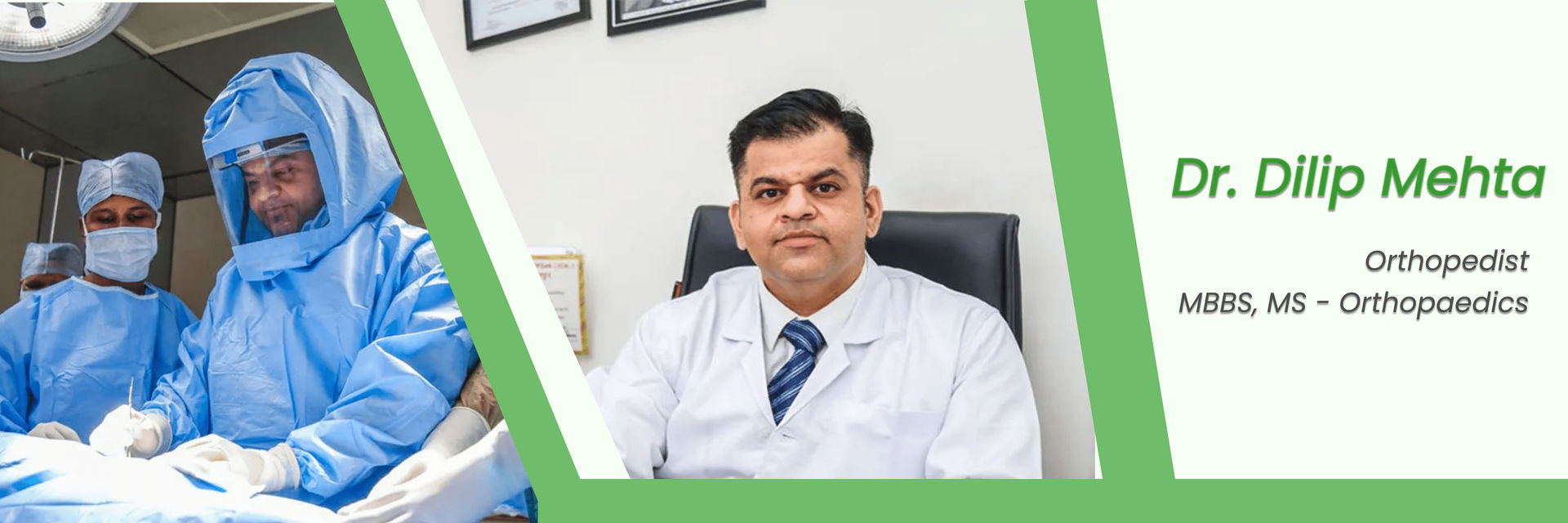According to the WHO, knee injuries are a major cause of global disability, especially in musculoskeletal conditions. The ACL is the most commonly injured ligament of the knee. It accounts for almost half of all knee injuries. In the US, it accounts for about 1 in 3500 people. An estimated 400,000 ACL surgeries are performed yearly in the US. Also, it has been reported that women are at an increased risk of ACL injury, with the ratio of females to males being 4.5:1.
Join us as we delve into the details of ACL recovery. We offer expert insights and practical advice for those still dealing with knee pain 2 years after ACL surgery.
Are you wondering if it's even normal to have Knee Pain 2 Years After ACL Surgery? Let’s find out.
Is Knee Pain 2 Years After ACL Surgery Normal?
While it's not uncommon to experience some degree of knee pain or discomfort two years after ACL surgery, the persistence of pain may indicate underlying issues. Understand how to differentiate between expected discomfort during recovery and pain that might indicate problems.
Normal post-ACL surgery experiences may include:
- Recovery Challenges: ACL surgery involves a significant rehabilitation process. Discomfort during the rehabilitation period is not uncommon. But persistent or worsening knee pain 2 years post-surgery is not considered normal, and it needs further evaluation.
There are some potential reasons for persistent knee pain after ACL surgery. Let’s start by understanding the causes of knee pain two years after ACL surgery.
What Causes Knee Pain 2 Years After ACL Surgery?
Knee pain persisting 2 years after various factors can cause anterior cruciate ligament (ACL) surgery.
Let’s look at some potential reasons for knee pain after ACL surgery:
- Graft Issues: There could be graft issues if you had an ACL reconstruction using a graft (tendon tissue) from another part of your body or a donor. These could be improper integration or stretching. This could lead to pain.
- Meniscus Tears: ACL injuries frequently happen with meniscus tears. If not treated in the initial surgery or if a new tear occurs, it can contribute to persistent knee pain.
- Cartilage Damage: Damage to the articular cartilage within the knee joint can cause pain. This can be related to the initial injury. It may also have developed over time.
- Joint Instability: Despite surgery, you may still experience a degree of joint instability. This can cause discomfort. It may be due to muscle weakness, improper rehabilitation or recurrent injury.
- Scar Tissue Formation: Excessive scar tissue can develop after surgery. This can limit motion and contribute to pain.
- Rehabilitation Issues: Inadequate or improper rehabilitation can cause persistent knee pain
- Overuse or Improper Activity: High-impact or strenuous activities can cause pain. Follow your doctor's advice on a gradual return to activities and sports.
- Biomechanical Factors: Issues with the alignment or mechanics of the lower extremities can contribute to ongoing knee pain. This may include foot mechanics problems, hip alignment or muscle imbalances.
There are other options besides ACL surgery. One of those is regenerative medicine. Check out our blog on stem cells for ACL treatment.
How Can I Manage Knee Pain 2 Years After ACL Surgery?
Here are some general strategies that may help manage knee pain:
- Consult your doctor: Consult your orthopedic surgeon to assess the cause of your knee pain. They will conduct a thorough examination and imaging studies. Then, they will provide tailored recommendations.
- Physical Therapy: A physical therapist can design a customized exercise program for you. This will address muscle imbalances and improve joint stability. Strengthening exercises for the quadriceps, hamstrings, and other muscles around the knee can be beneficial.
- Low-Impact Exercises: Engage in low-impact exercises such as swimming, cycling, or walking to maintain joint mobility. Strengthen your surrounding muscles without putting excessive stress on the knee.
- Pain Management Medications: Over-the-counter pain relievers may help manage pain and reduce inflammation.
- Joint Protection Techniques: Avoid high-impact or strenuous activities that could worsen your condition. Consider using supportive devices like braces.
- Ice and Heat Therapy: Applying ice or heat to the affected knee may help ease your pain. It will also reduce inflammation. Ice is typically recommended for acute pain and swelling. Heat can be beneficial for chronic pain and stiffness.
- Maintain a Healthy Weight: Excess body weight can place additional stress on the knee joint. Maintain a healthy weight through a balanced diet and regular exercise. This will reduce strain on the knee.
- Supportive Footwear: Wearing supportive shoes with proper cushioning and stability can help distribute forces evenly across the lower extremities. This will also reduce knee pain.
- Rest and Recovery: Allow adequate time for rest and recovery, especially after engaging in physical activities.
- Follow-up with your doctor: Monitor your progress and discuss any changes in symptoms.
Don't try self-treatment. Take Advice from our experts on knee pain prevention strategies -- Schedule your appointment now.
Can you get relief with simple do-at-home exercises? let’s find out
When Should I Seek Medical Attention for Knee Pain After ACL Surgery?
Here are some situations in which you should seek medical help:
- Sudden and Severe Pain: If you have a sudden onset of severe pain not relieved by rest, elevation, or over-the-counter pain medication, seek medical attention.
- Increased Swelling: If you notice a sudden increase in swelling, especially with redness or warmth around the knee, it may indicate an infection or blood clot. Immediate medical attention is needed.
- Instability or Giving Way: If you feel instability in your knee or the joint gives way unexpectedly, it could be a sign of a problem with the graft or other structural issues. This requires evaluation by your doctor.
- Inability to Bear Weight: If you cannot bear weight on the operated leg or if the pain is severe when trying to walk, consult your doctor.
- Signs of Infection: Look for signs of infection, such as fever, increased redness, warmth or swelling around the surgical site. Studies have shown that The frequency of medical or surgical complications like infections after ACLR is estimated from 2.3% to 39% at 2 years post-surgery
- Persistent Pain: If you experience persistent or worsening pain that does not improve with rest and appropriate self-care measures, consult your orthopaedic surgeon.
- Maintaining functional joint stability: Studies show that after an ACL tear, the function in the affected leg may not fully recover. It's not just a mechanical issue but also impacts sensory motor integrity. It may not be restored post-surgery.
- Limited Range of Motion: If you notice a significant decrease in your range of motion or cannot fully straighten or bend your knee, it may indicate a problem. This needs medical evaluation.
- Popping or Clicking Sounds: Occasional noise in the knee is normal. But it's important to check if your joints make unusual sounds, specially with pain.
- Changes in Symptoms: If you notice any changes in your symptoms, such as the nature or location of pain, inform your doctor.
Knee pain is a common problem worldwide, and regenerative medicines are emerging as a promising way of hope for many people. If you want to know more about it, check out our blog on stem cell treatment for knee pain.
Can Knee Pain 2 Years After ACL Surgery Be Prevented?
Let’s look at some strategies:
- Preoperative Conditioning: Before surgery, perform preoperative conditioning exercises to strengthen the muscles around the knee. Improved muscle strength and flexibility will give better outcomes post-surgery.
- Adherence to Rehabilitation: Follow your rehabilitation program diligently. Physical therapy is a crucial component of ACL surgery recovery. It will help restore strength, range of motion and stability.
- Gradual Return to Activities: Avoid returning to high-impact or strenuous activities too soon after surgery.
- Maintain Healthy Body Weight: Excess body weight can place additional stress on the knee joint.
- Muscle Strengthening: Continue with targeted muscle-strengthening exercises, particularly for the quadriceps, hamstrings, and calf muscles. A well-balanced and strong musculature supports the knee joint.
- Balanced Physical Activity: Engage in various low-impact physical activities to maintain overall fitness. Try swimming, cycling, and walking.
- Regular Follow-ups: Attend regular follow-up appointments. Discuss any concerns or changes in symptoms during these appointments.
- Wear Protective Gear: If engaging in activities with a risk of impact or injury, such as certain sports, consider wearing protective gear or braces as your healthcare provider recommends. Studies show that 2 years after ACL, patients with braces have no relevant leg asymmetry in knee muscle activity.
- Look for symptoms: Pay attention to discomfort, pain, or instability signs. If you experience new or persistent symptoms, consult your doctor promptly.
References:
https://www.ncbi.nlm.nih.gov/books/NBK499848/
https://journals.sagepub.com/doi/10.1177/03635465231194784






